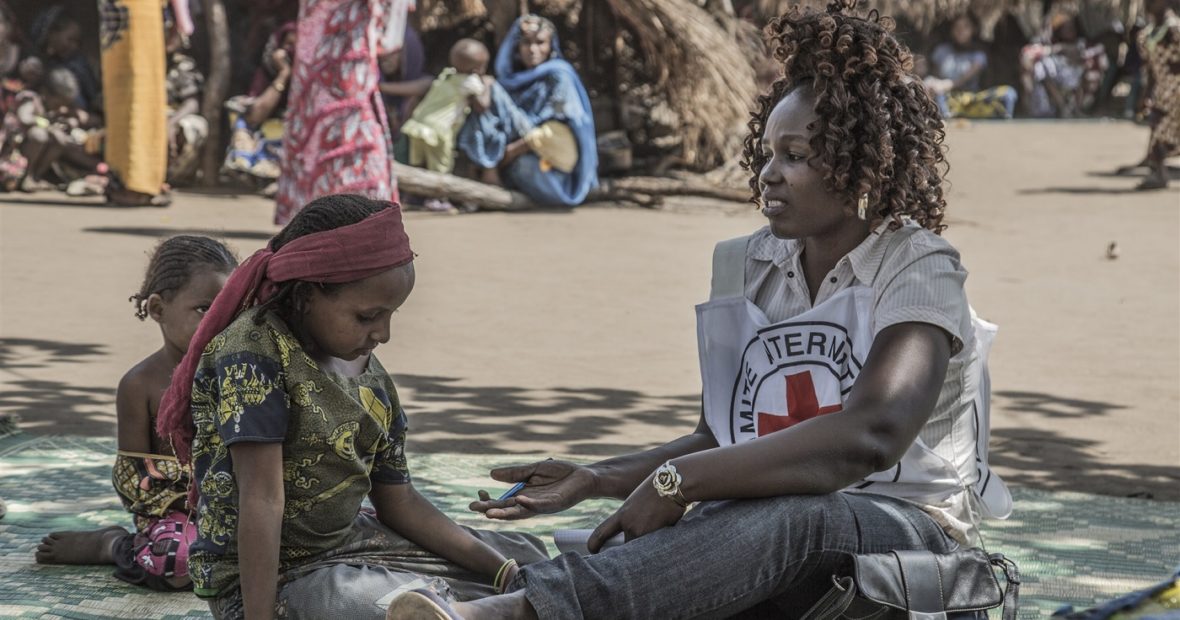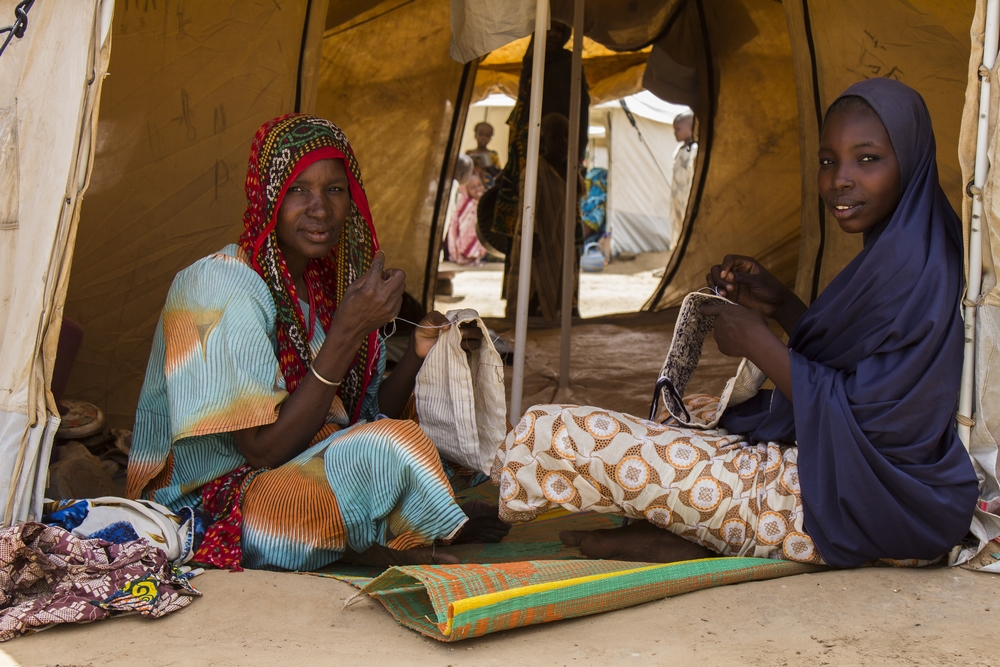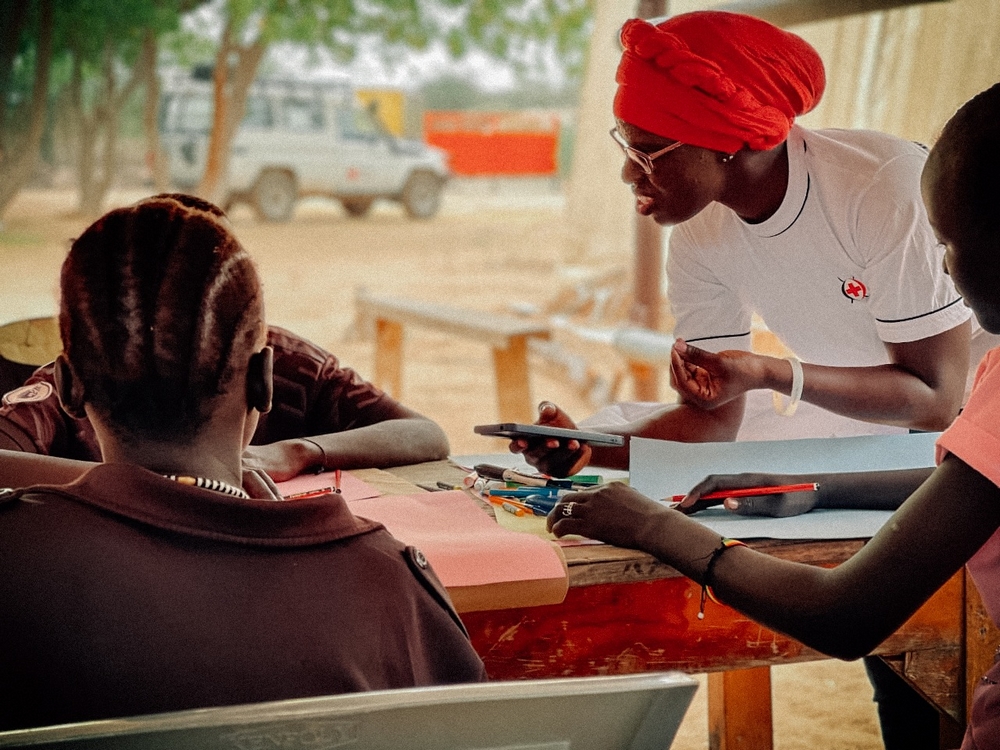Trust is something we do when we cannot be absolutely sure. And all of us do it many times a day. We trust our colleagues to do what they say they will do. We trust that our doctors and dentists are good at their jobs and that their qualifications hanging on the wall are genuine. We trust our banks to look after our money. We trust cars to stop when traffic lights go red.
We only need to trust when we cannot really know something for certain. In the words of Professor Diego Gambetta, a pioneer of trust research, trust is “a particular expectation we have with regard to the likely behaviour of others…Trust comes into play in situations of ignorance and uncertainty when the other party has genuine freedom to act or not, and so freedom to disappoint our expectations.”[1] In such situations where we have common interests but different capabilities, we must opt for trusting others as the best way to try and achieve our goals.
This means that trust is an attitude we hold almost as an act of faith. It is a bit of a gamble and, as Gambetta points out, “being wrong is sometimes an inevitable part of the wager.”
Trust is partly emotional and partly calculative. It is a feeling and a rational evaluation. Even if I do not know something for certain and cannot entirely predict if it is possible, I may trust a person or an organization to try and achieve it. I believe in them and decide it is worth giving them a chance. I take a risk on them.
My trust in them may be based on previous experience in which they have achieved good things. My belief in them is, therefore, verifiable to some degree by past evidence of their reliability. Or, I may just identify with them very strongly – their values and their personality. They are like me and so I feel can trust them to behave like me in a task in which I am unable to join in myself or which I cannot directly oversee.
Trust and suspicion in institutions
Trust in institutions and their leaders has become an important subject of academic study and policy engagement in recent years. Trust research is part of the wider “affective revolution” in social sciences which focuses on the power of emotions and attitudes – like fear, hope, doubt and hate – in social, economic and political life. Trust was the subject of the BBC’s worldwide Reith Lectures given by Cambridge philosopher Professor Onora O’Neil in 2002.[2] Last year, Professor Nicholas Wheeler contributed a masterly study on Trusting Enemies which examined face-to-face trust in international conflict resolution.[3]
Problems of trust affect all sections of business, government and politics today and the trust challenge in humanitarian action is by no means exceptional. Anxiety around trust is part of a deeper crisis of confidence in mature welfare states and their extensive public services, in corrupt governments and in various forms of neo-liberal capitalism which see large concentrations of power vested in enormous global companies and a personality cult of the Chief Executive.
Trust fluctuates significantly as serious scandals emerge in welfare institutions and businesses, like the child abuse scandals in children’s institutions, the reckless behaviour of the banking sector or Volkswagen’s deception over the carbon emissions of millions of its cars.
Trust in an organization and an individual is intimately linked to their good reputation which, famously, can take decades to build and vanish overnight. Public trust in government institutions, businesses, politicians, professions and religious organizations is now constantly monitored as an indicator of reputation and success in different surveys and indices like the World Bank Trust in Government Index, the Edelman Trust Barometer and the Living Library Index.
Suspicion of leaders and large institutions is widespread today and probably always has been to various degrees. This is a good thing. Doubt and scepticism are important human attributes which keep us safe by ensuring we test our assumptions. If we need trust as a very practical attitude to get on with our daily lives, we also need doubt and some healthy suspicion as we negotiate the world. Trust allows us to move forwards. Suspicion keeps us alert and on our toes as we do so.
Trusting humanitarians
Humanitarian organizations routinely present themselves as highly trustworthy. Humanitarian marketing typically presents us as near miracle workers who will go to the hardest of places to reach people who are suffering the most and then help them in a highly principled and professional way that responds to need alone and is immune to any undue pressure or constraints. And we do all this, apparently, in a way that offers our donors great value for money.
But many of our stakeholders are not buying this line so easily today. Suspicion is in the air around humanitarian action and trust must be earned and regained rather than assumed. There are perhaps five main causes for this recent dent in humanitarian trust.
• Governments and armed groups on all sides of conflicts need increasing assurance of humanitarian neutrality and the impartiality of aid which they think could all too easily be manipulated and fall into enemy hands.
• A new wave of scepticism about internationalism or “globalism” and the resurgence of nationalism is leading millions of western citizens to ask whether aid money spent abroad is good value when there is pressing poverty at home.
• Many people in aid-receiving societies are fed up with large imperious international aid agencies. They want to “localize” aid and see humanitarian budgets go more directly to local organizations and national authorities.
• Many victims of war and disasters wonder why their neighbours are singled out for help when they are not.
• Finally, scandals around the sexual and financial behaviour of a few humanitarian workers have sullied the reputation of the wider profession.
This clearly suggests that humanitarian action has a trust challenge and it is right and proper that the Red Cross and Red Crescent Movement is formally owning the problem and looking for ways to solve it at their 33rd International Conference in December.
All of us know that trust is fundamental to humanitarian work and that we will not succeed, or even exist, without the trust of everyone involved in humanitarian action. This trust challenge is particularly important for us at the ICRC as we now prioritize working in partnerships more than ever before.
Every year, the ICRC visits hundreds of detention centres, provides humanitarian relief across the lines of dozens of armed conflicts and has confidential dialogues with government authorities, armed forces and armed groups. We can only do this because we are trusted. And we need to keep this trust.
Two main areas of trust
The Conference in December will explore two main areas where trust is required in humanitarian action: at the operational level around humanitarian access and acceptance, and in our accountability mechanisms around finances and personal behaviour.
• Operational trust
The ICRC’s work in armed conflict and violence makes it is essential that we are trusted by weapons carriers on all sides, by political authorities at all levels and by people affected by armed conflict.
This operational trust often needs to be intimate and interpersonal with individuals who are wounded, detained, hungry, displaced, poor and distressed. Developing interpersonal trust is also essential with key counterparts in national and local government, armed groups, the media and other humanitarian agencies. When people meet an ICRC person they must be able to trust that this person has humanitarian integrity and so embodies the purely humanitarian objectives of the ICRC based in law, principles and professionalism.
But we also need more collective and interorganizational trust as we work at scale with the consent of various authorities, local communities and with funds donated by governments and International Finance Institutions, like the World Bank. This collective trust is key when we are delivering projects and spending money in places their representatives may never visit and monitor directly. All these different groups of people need to trust what we are doing as an organization, and how we are doing it, if we are to operate with access, safety, acceptance and success. This wide array of stakeholders need to trust that the ICRC, as a whole, plans and acts with humanitarian integrity.
We must sustain this operational trust by working firmly to international humanitarian law and our fundamental principles and by being true to our word, consistent in our approach and doing what we say we will do. Or, explaining honestly why we cannot deliver if the situation changes.
But operational trust runs both ways. The ICRC also needs to trust all these various organizations to do what they say too. A great part of our work and the lives of our people is secured by putting our trust in others. Humanitarian trust is mutual trust.
• Accountability trust
Trust in humanitarian action is also about money and behaviour. It is about trusting us not to drag others into scandal. This may be fraud or extravagance, or other forms of bad behaviour like sexual exploitation or the bullying, harassment or ill treatment of our staff and partners.
Here, the onus is on the ICRC to assure our many stakeholders that we have sufficient standards and systems in place to protect their money and respect people properly. We must do this in our own organization but we are also dependent on trusting the many individuals and organizations with whom we work within our Movement and beyond to be financially honest and to treat people humanely. This kind of trust around financial integrity and staff behaviour rightly demands certain guarantees that prove we have the necessary safeguarding and compliance systems in place to protect people and money.
The balance between trust and compliance
Compliance systems are one important way to increase the odds for success in a trusting relationship. Instead of simply trusting that an organization is making sure that good things are being done and bad things are being prevented, coercive systems can also be put in place to ensure a level of compliance with essential standards.
The ICRC has made significant investments in new operational reporting systems and in a Global Compliance Office and Ombudsman network. These systems track humanitarian financial allocations across our operations and work to prevent, monitor and sanction sexual harassment, bullying and fraud among our worldwide staff.
Compliance works best when it is not just managed as a technical disciplinary procedure to correct failure after the event but when it is instilled socially as part of a whole organization effort to develop a preventive organizational culture in which people automatically respect humanitarian principles, financial accountability and treat each other with respect.
A strong culture of compliance complements and increases trust but excessive compliance frameworks and procedures can actually reduce trust and effectiveness. Excessive procedure may hedge activities with dense bureaucratic systems of checking and validating in a usually impossible attempt to achieve a panoptical view of staff activity and organizational impact. Procedural excess creates the risk that people spend more time checking they are compliant than working face-to-face with people in need. More emotionally, when people do not feel trusted, they tend to become resentful and partnership breaks down.
The art of a good compliance system, therefore, is to find the right touch system which safeguards the essentials, minimizes bureaucracy and builds a preventive organizational culture which still trusts initiative and judgement in difficult situations.
Prioritizing and improving trust
The Prophet Muhammed (PBUH) famously described trust as “treasure”. Humanitarian organizations must preserve this treasure if we are to survive and thrive.
Alongside the facts, figures and descriptions of effectiveness in our reporting, it is people’s trust in our essential humanitarian integrity, our professionalism and our effectiveness which creates the abiding goodwill of suffering communities, States, armed groups, donors and the media and on which successful humanitarian action depends.
At December’s Conference we can look forward to some positive recommendations from our worldwide Red Cross and Red Crescent Movement about how we can keep trust in humanitarian action alive alongside a healthy dose of suspicion. Like all institutions, humanitarian organizations need both to keep us honest, respectful and effective.
***
Footnotes
[1] Diego Gambetta ed, Trust: Making and Breaking Cooperative Relations, Basil Blackwell, Oxford 1988, pp213-238.
[2] Onora O’Neil, A Question of Trust, the BBC Reith Lectures 2002, Cambridge University Press, Cambridge, 2002, 110pp.
[3] Nicholas Wheeler, Trusting Enemies, Oxford University Press, Oxford 2018.
Other blog posts by this author
- The Power of Humanity: On being human now and in the future, 30 July 2019
- Masculinity and War–let’s talk about it, 15 March 2018
- Impartiality and Intersectionality, 16 January 2018
- Habitat III: The smartest city is a safe city, 24 October 2016
- Remember the millions of people living in urban violence, 4 July 2016






Thank you very much for these timely and interesting reflections on this important issue. You covered a number of important aspects that should be taken into consideration. But I think another important area in this conversation should be data protection and privacy issues. The way the humanitarians protect personal data of affected individuals (migrants, victims of conflicts, violence, disasters, etc) is of paramount importance especially now in our digital world. Most of the time we talk about the crucial role of data protection, because it poses a critical threat to the health, safety, security and well-being of an individual, community or a larger group of people, but we talk less about how data protection can build or help to maintain the trust with communities, the public and donors.
Superb stuff as well, Thank you!. I have enjoyed the article very much. Another question that I would add in your introduction is: Can affected states / people trust aid groups are free from foreign policy of their home countries, when harmful?.
Another challenge facing the ICRC and IFRC in particular is the real and/or perceived partiality and politicisation of national societies. Many other NGOs look to the ICRC and MSF as shining examples for the rest of the sector, so any failures run the risk of undermining the legitimacy of all humanitarian action.
This article has been very informative and thought provoking. Points brought up in Operational trust and Accountability trust has made me realize the depth of the inter-organizational efforts humanitarians undergo. Humanitarian work consists of those who are willing to undergo extensive background checks to serve other humans. This is work of integrity.
Thanks for reading Aaleyah!
The article was very good. It was very thought-provoking. As a law student, I really enjoyed reading it.Thank you for your effortsI wish you success.
With the utmost respect _ yousef
Thank you for reading Yousef!
It was great to know that humanitarian services are very transparent and are able to communicate why they can’t deliver based on the current circumstances. My wife and I are thinking about sharing our blessings to the minority, because we think that we have more than we need. That being said, we’ll definitely make sure to find the best feeding organization for the homeless in our area. https://www.friendsofhopeintl.org/programs/hopefeeding.html